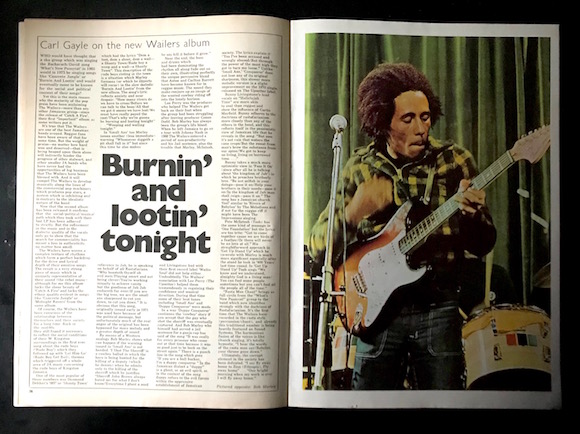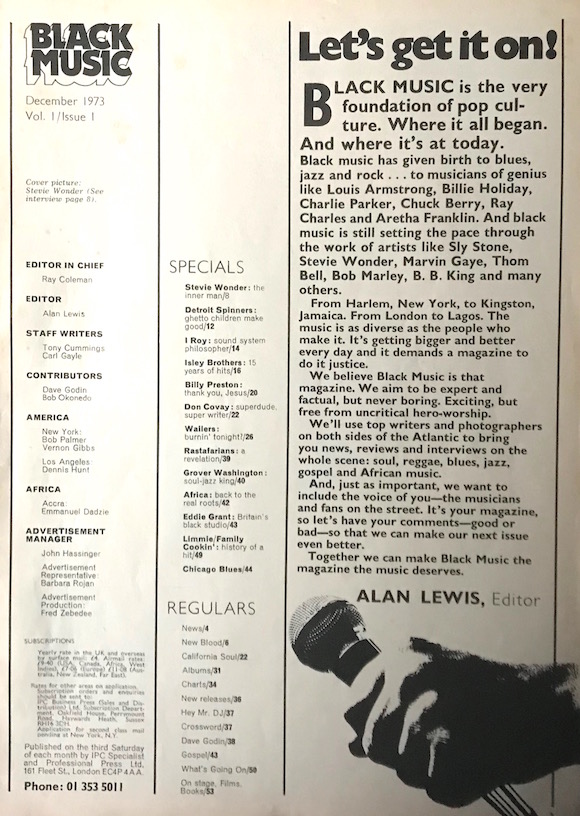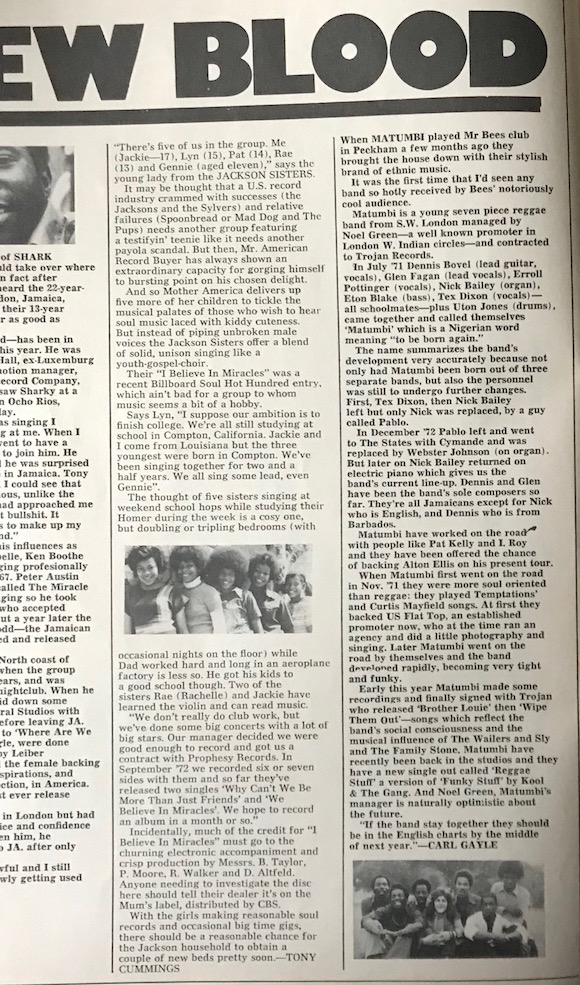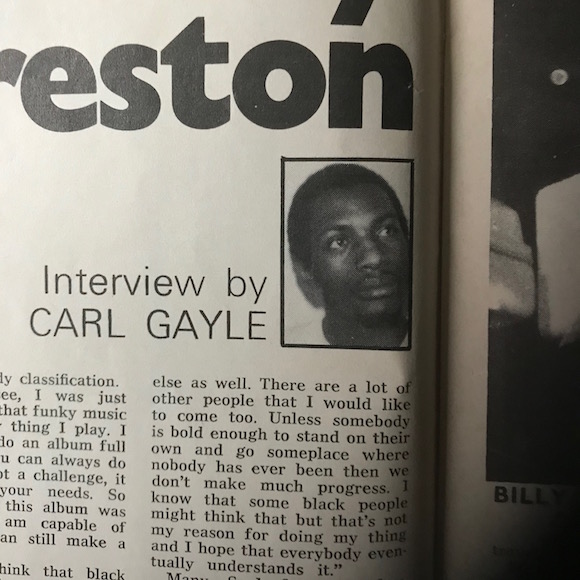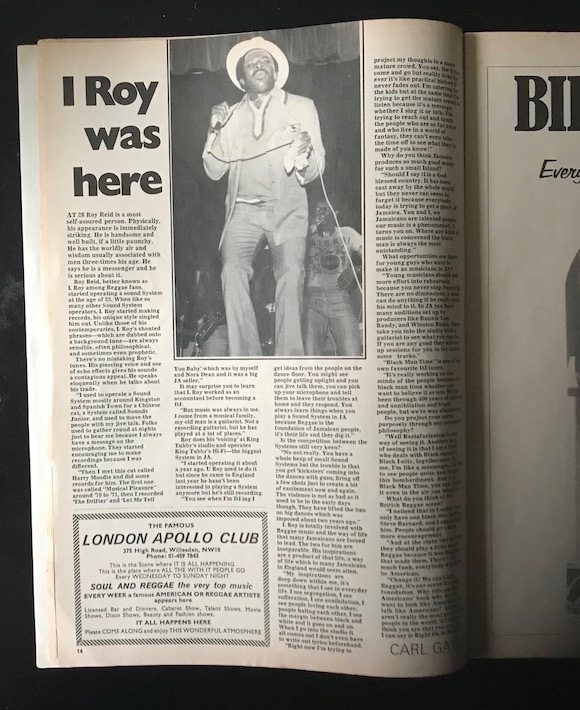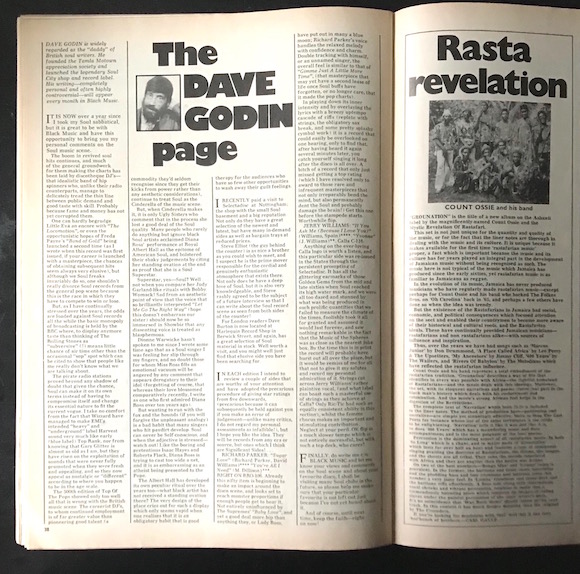The Rise & Fall of the Music Press: The brilliance of Black Music, Carl Gayle and Alan Lewis
Working on my forthcoming book The Rise & Fall Of The Music Press has brought home to me the brilliance of publications and journalists who have been marginalised in the story of the media sector inaugurated by the launch of The Melody Maker (as it was then known) in 1926.
The new book, which is published by Thames & Hudson in the autumn, is a total overhaul of In Their Own Write, my 20-year old music press oral history, and runs to 120,000 words focusing on the years 1950-2000 with an emphasis on magazines and writers – inevitably women, people of colour and those of the LGBTQ+ communities – whose stories haven’t been properly stitched into the narrative.
The freedom to tear my previous book to shreds and start again with a story which straddles both sides of the Atlantic enabled me to gain a much clearer understanding of the significance of certain issues and writers, so I’ll be featuring them occasionally here.
Black Music was a British monthly established at the end of 1973 as an offshoot of IPC’s Melody Maker by the weekly’s chief sub-editor, the late Alan Lewis, then at the start of his career as a music press pioneer (among his most successful launches were Kerrang! and Loaded). Lewis worked with a tight editorial team incuding Tony Cummings of the soul fanzine Shout and Carl Gayle, whose exemplary journalism – particularly on the potency of reggae – was key.
Gayle’s use of patois and slang in his copy proved a hit with readers, while his writing also exposed the patronizing tone of most coverage of Afro-Carribean street culture in the white rock press; even the liberal-leaning NME, in an interview in the same period, described Marley as incomprehensible.
Gayle subsequently launched Jahugliman, a Kingston-based fanzine that covered Rastafarianism and Jamaican politics, and recorded as Carl I before trading music and writing for farming.
With a cover story on Stevie Wonder, then riding high with his masterpiece Innervisions, Black Music hit the ground running in December 1973. It showcased artists who, like Wonder, were crossing over: the Isley Brothers, whose 3+3 mixed funk and rock, and the Wailers, whose Catch a Fire and Burnin’ set them on the path to acceptance by the mainstream.
With glossy covers of stars such as Marvin Gaye, Barry White and Curtis Mayfield, Black Music sold around 25,000 copies a month: a fraction of the inkies’ weekly sales but proof of a profitable niche. The mag lasted for around a decade before being absorbed into Blues & Soul, but its issues remain beacons of intelligent and incisive music journalism.
Alan Lewis died aged 75 last summer; read former NME writer and Loaded editor James Brown’s obituary here.


